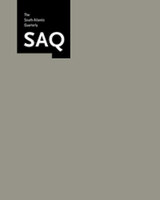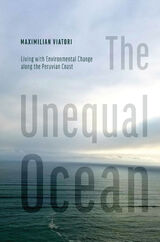



This volume celebrates 100 years of Harvard Studies in Classical Philology. It contains essays by Harvard faculty, emeriti, currently enrolled graduate students, and most recent Ph.D.s. It displays the range and diversity of the study of the Classics at Harvard at the beginning of the twenty-first century.
Volume 100 includes: E. Badian, “Darius III”; D. R. Shackleton Bailey, “On Statius’ Thebaid”; Brian W. Breed, “Silenus and the Imago Vocis in Eclogue 6”; Wendell Clausen, “Propertius 2.32.35–36”; Kathleen Coleman, “Missio at Halicarnassus”; Stamatia Dova, “Who Is μακάρτατος in the Odyssey?”; Casey Dué, “Tragic History and Barbarian Speech in Sallust’s Jugurtha”; John Duffy and Dimiter Angelov, “Observations on a Byzantine Manuscript in Harvard College Library”; Mary Ebbott, “The List of the War Dead in Aeschylus’ Persians”; Gloria Ferrari, “The Ilioupersis in Athens”; José González, “Musai Hypophetores: Apollonius of Rhodes on Inspiration and Interpretation”; Albert Henrichs, “Drama and Dromena: Bloodshed, Violence, and Sacrificial Metaphor in Euripides”; Alexander Hollmann, “Epos as Authoritative Speech in Herodotos’ Histories”; Thomas E. Jenkins, “The Writing in (and of) Ovid’s Byblis Episode”; Christopher Jones, “Nero Speaking”; Prudence Jones, “Juvenal, the Niphates, and Trajan’s Column (Satire 6.407–412)”; Leah J. Kronenberg, “The Poet’s Fiction: Virgil’s Praise of the Farmer, Philosopher, and Poet at the End of Georgics 2”; Olga Levaniouk, “Aithôn, Aithon, and Odysseus”; Nino Luraghi, “Author and Audience in Thucydides’ Archaeology. Some Reflections”; Gregory Nagy, “‘Dream of a Shade’: Refractions of Epic Vision in Pindar’s Pythian 8 and Aeschylus’ Seven against Thebes”; Corinne Ondine Pache, “War Games: Odysseus at Troy”; David Petrain, “Hylas and Silva: Etymological Wordplay in Propertius 1.20”; Timothy Power, “The Parthenoi of Bacchylides 13”; Eric Robinson, “Democracy in Syracuse, 466–412 B.C.”; Charles Segal, “The Oracles of Sophocles’ Trachiniae: Convergence or Confusion?”; Zeph Stewart, “Plautus’ Amphitruo: Three Problems”; Sarolta A. Takàcs, “Politics and Religion in the Bacchanalian Affair of 186 B.C.E.”; R. J. Tarrant, “The Soldier in the Garden and Other Intruders in Ovid’s Metamorphoses”; Richard F. Thomas, “A Trope by Any Other Name: ‘Polysemy,’ Ambiguity, and Significatio in Virgil”; Michael A. Tueller, “Well-Read Heroes Quoting the Aetia in Aeneid 8”; and Calvert Watkins, “A Distant Anatolian Echo in Pindar: The Origin of the Aegis Again.”

With articles that engage directly—as well as theoretically—with de Certeau, this collection corrects a long-standing imbalance in the criticism by covering works from two periods about which little is known in anglophone circles: his early books on religious history and his midlife histories of mysticism and possession. It also includes critiques from queer theory and feminist theory, as well as comparative readings that assess de Certeau alongside his famous contemporary, Michel Foucault. With articles by an international array of scholars who address both the secular and the religious thinker, this special issue is the most definitive study to date of this important twentieth-century thinker.
Contributors. Jeremy Ahearne, Frederick C. Bauerschmidt, Ian Buchanan, Philippe Carrard, Claire Colebrook, Tom Conley, Verena Andermatt Conley, Catherine Driscoll, Carla Freccero, John Frow, Richard Terdiman, Timothy Tomasik, Marie-Claire Vallois, Graham Ward
READERS
Browse our collection.
PUBLISHERS
See BiblioVault's publisher services.
STUDENT SERVICES
Files for college accessibility offices.
UChicago Accessibility Resources
home | accessibility | search | about | contact us
BiblioVault ® 2001 - 2025
The University of Chicago Press









